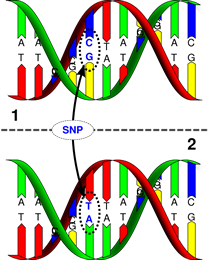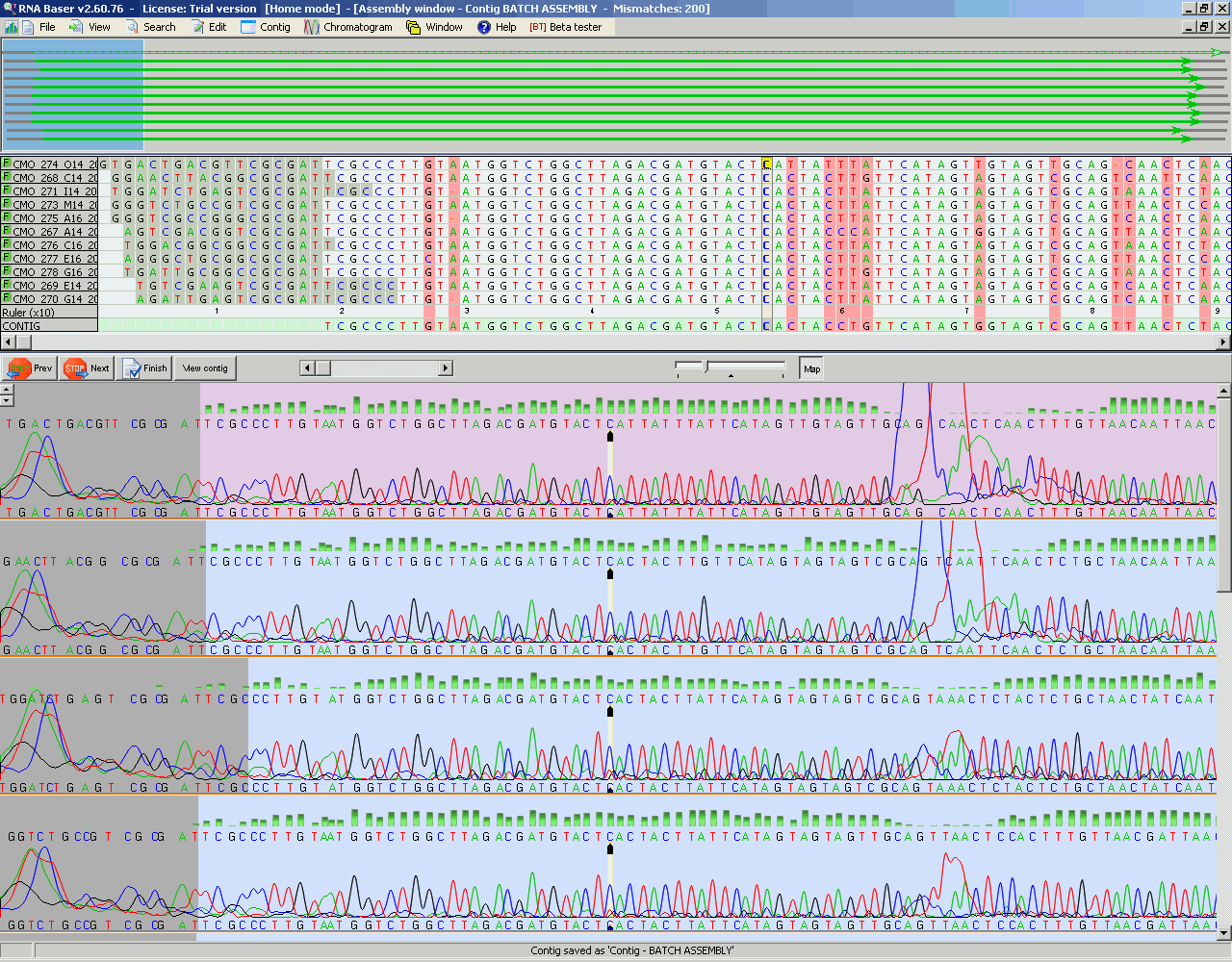 |
Single nucleotide polymorphism analysis and mutation detection
SNP DEFINITION
DNA sequence variations that occur when a single nucleotide (A, T, C, or G) in the genome sequence is altered. Each individual has many single nucleotide polymorphisms that together create a unique DNA pattern for that person. SNPs promise to significantly advance our ability to understand and treat human disease.
A Single nucleotide polymorphism or SNP (pronounced snip) is a DNA sequence variation occurring when a single nucleotide - A, T, C, or G - in the genome (or other shared sequence) differs between members of a species (or between paired chromosomes in an individual). For example, two sequenced DNA fragments from different individuals, AAGCCTA to AAGCTTA, contain a difference in a single nucleotide. In this case we say that there are two alleles : C and T. Almost
all common SNPs have only two alleles.
Within a population, SNPs can be assigned a minor allele frequency - the ratio of chromosomes in the population carrying the less common variant to those with the more common variant. It is important to note that there are variations between human populations, so a SNP allele that is common in one geographical or ethnic group may be much rarer in another. In the past, single nucleotide polymorphisms with a minor allele frequency of ? 1% (or 0.5% etc.) were given
the title "SNP",
an unwieldy definition. With the advent of modern bioinformatics and a better understanding of evolution this definition is no longer necessary.
Single nucleotide polymorphisms may fall within coding sequences of genes, non coding regions of genes, or in the intergenic regions between genes. SNPs within a coding sequence will not necessarily change the amino acid sequence of the protein that is produced, due to degeneracy of the genetic code. A SNP in which both forms lead to the same polypeptide sequence is termed synonymous (sometimes called a silent mutation) - if a different polypeptide sequence is produced they are
non-synonymous. SNPs that are not in protein coding regions may still have consequences for gene splicing, transcription factor binding, or the sequence of non-coding RNA. |
 |
|
DNA strand 1 differs from DNA strand 2 at a single base-pair location (a C/T polymorphism).
|
Variations in the DNA sequences of humans can affect how humans develop diseases, respond to pathogens, chemicals, drugs, etc. However, their greatest importance in biomedical research is for comparing regions of the genome between cohorts (such as with matched cohorts with and without a disease).
The study of single nucleotide polymorphisms is also important in crop and livestock breeding programs (see genotyping).
Single nucleotide polymorphism detection software
Starting with v4, DNA Sequence Assembler offers advanced functions for single nucleotide polymorphism detection and analysis.

Useful links:
The SNP Consortium

Back to articles
|
 |
